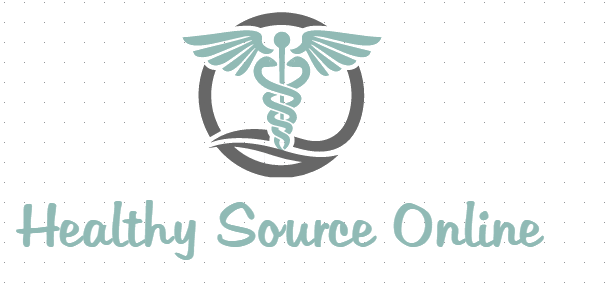
Dos and Don’t When You Suffer from MigrainesMigraines are so painful that many migraine sufferers try almost anything to prevent them. Most of the time, however, the actual cause is out of your control. Common causes include a family history of migraines, hormone fluctuations, and changing weather conditions. Read on to learn eight common mistakes people make and what you can do to manage migraines.
 1. Avoiding Too Many Potential Trigger FoodsMany people with migraines go to great lengths to avoid foods believed to “trigger” headaches like alcohol, chocolate, and cheese. The reality is that research has not consistently found food to be a reliable trigger. Before eliminating a food from the diet, find out if it is a true headache-trigger for you. Keep a food diary to track how you feel after consuming certain foods. You may be surprised by what you find.
1. Avoiding Too Many Potential Trigger FoodsMany people with migraines go to great lengths to avoid foods believed to “trigger” headaches like alcohol, chocolate, and cheese. The reality is that research has not consistently found food to be a reliable trigger. Before eliminating a food from the diet, find out if it is a true headache-trigger for you. Keep a food diary to track how you feel after consuming certain foods. You may be surprised by what you find.
 2. Not Getting Appropriate SleepToo little sleep (less than six hours) or too much sleep (more than nine hours) per night is a proven migraine trigger. Anxiety is often a reason for too little sleep, and depression may be a cause of too much sleep. Many people with migraines also have symptoms of anxiety and depression. There are ways to improve sleep, which can make a big difference in your headaches. If you have sleep problems, talk to your doctor about how to get a better night’s rest.
2. Not Getting Appropriate SleepToo little sleep (less than six hours) or too much sleep (more than nine hours) per night is a proven migraine trigger. Anxiety is often a reason for too little sleep, and depression may be a cause of too much sleep. Many people with migraines also have symptoms of anxiety and depression. There are ways to improve sleep, which can make a big difference in your headaches. If you have sleep problems, talk to your doctor about how to get a better night’s rest.
 3. Not Using Stress Reduction TechniquesStress is the most common headache trigger, according to the American Headache Society. Many of us don’t do enough to manage stress. Although it’s impossible to remove all stress from life, we can reduce or change the response to it. Great ways to relieve stress include getting enough sleep, exercising, deep breathing, meditation, yoga, and biofeedback. Take time to unwind and relax each day. A psychologist can also teach you skills to help control your reaction to stress.
3. Not Using Stress Reduction TechniquesStress is the most common headache trigger, according to the American Headache Society. Many of us don’t do enough to manage stress. Although it’s impossible to remove all stress from life, we can reduce or change the response to it. Great ways to relieve stress include getting enough sleep, exercising, deep breathing, meditation, yoga, and biofeedback. Take time to unwind and relax each day. A psychologist can also teach you skills to help control your reaction to stress.
 4. Consuming Too Much CaffeineSmall amounts of caffeine can help relieve headaches. Doctors may recommend drinking coffee for a headache, but too much caffeine can actually cause headaches. Studies have found that consuming 100 mg of caffeine (the equivalent of a cup of coffee) daily increases possible daily headaches three-fold. Other chemicals linked to headaches include aspartame, MSG, and nitrates. Cut back or eliminate caffeine and these other chemicals to see if it helps your headaches.
4. Consuming Too Much CaffeineSmall amounts of caffeine can help relieve headaches. Doctors may recommend drinking coffee for a headache, but too much caffeine can actually cause headaches. Studies have found that consuming 100 mg of caffeine (the equivalent of a cup of coffee) daily increases possible daily headaches three-fold. Other chemicals linked to headaches include aspartame, MSG, and nitrates. Cut back or eliminate caffeine and these other chemicals to see if it helps your headaches.
 5. Skipping Meals and Unhealthy Eating HabitsWhen it comes to controlling migraines, much attention is put on what you eat. However, when you eat matters too. Don’t allow yourself to get hungry and don’t skip meals. Eat small, healthy meals throughout the day and maintain a healthy weight. Studies have found that obesity increases the risk of many types of headaches.
5. Skipping Meals and Unhealthy Eating HabitsWhen it comes to controlling migraines, much attention is put on what you eat. However, when you eat matters too. Don’t allow yourself to get hungry and don’t skip meals. Eat small, healthy meals throughout the day and maintain a healthy weight. Studies have found that obesity increases the risk of many types of headaches.
 6. Not Drinking Enough FluidsDehydration is a risk factor for headaches. Drink at least eight ounces of water each day to stay hydrated. Avoid diet drinks containing aspartame and sugary drinks like soda and flavored waters, which may be headache triggers in some people. Remember to limit coffee and caffeine-containing ‘energy’ drinks. Not only can the caffeine in these beverages trigger headaches, but it causes the body to lose fluid.
6. Not Drinking Enough FluidsDehydration is a risk factor for headaches. Drink at least eight ounces of water each day to stay hydrated. Avoid diet drinks containing aspartame and sugary drinks like soda and flavored waters, which may be headache triggers in some people. Remember to limit coffee and caffeine-containing ‘energy’ drinks. Not only can the caffeine in these beverages trigger headaches, but it causes the body to lose fluid.
 7. Overusing MedicineMany migraine sufferers turn to over-the-counter medicines to relieve their headache pain. Drugs may be a good choice if they work and you don’t take the recommended dose more than two days a week. If used too often, some drugs can make your headaches worse and lead to other health problems. Talk to your doctor about all your medications. You may benefit from a prescription migraine medicine.
7. Overusing MedicineMany migraine sufferers turn to over-the-counter medicines to relieve their headache pain. Drugs may be a good choice if they work and you don’t take the recommended dose more than two days a week. If used too often, some drugs can make your headaches worse and lead to other health problems. Talk to your doctor about all your medications. You may benefit from a prescription migraine medicine.
 8. Using the Wrong MedicineHow well do you know your headaches? If you are a migraine sufferer, consider all your headaches to be migraine-related and treat them appropriately. For example, don’t take sinus headache medicine if you have migraines, even if you think it is a sinus headache. Take your migraine medicine. According to the American Headache Society, research shows that the majority of people who think they are having sinus problems are in fact having a migraine.
8. Using the Wrong MedicineHow well do you know your headaches? If you are a migraine sufferer, consider all your headaches to be migraine-related and treat them appropriately. For example, don’t take sinus headache medicine if you have migraines, even if you think it is a sinus headache. Take your migraine medicine. According to the American Headache Society, research shows that the majority of people who think they are having sinus problems are in fact having a migraine.
 Control the Most Common TriggersIt is easy to be confused by misinformation about migraines floating around the internet. Learn about the proven migraine triggers, such as anxiety, poor sleep, or stress, and do what you can to control them. Keep a headache diary to identify what may be triggering your migraines. Reduce or eliminate these triggers, but don’t stress over it (remember, stress causes headaches). If your treatment plan isn’t working, talk to your doctor.
Control the Most Common TriggersIt is easy to be confused by misinformation about migraines floating around the internet. Learn about the proven migraine triggers, such as anxiety, poor sleep, or stress, and do what you can to control them. Keep a headache diary to identify what may be triggering your migraines. Reduce or eliminate these triggers, but don’t stress over it (remember, stress causes headaches). If your treatment plan isn’t working, talk to your doctor.




